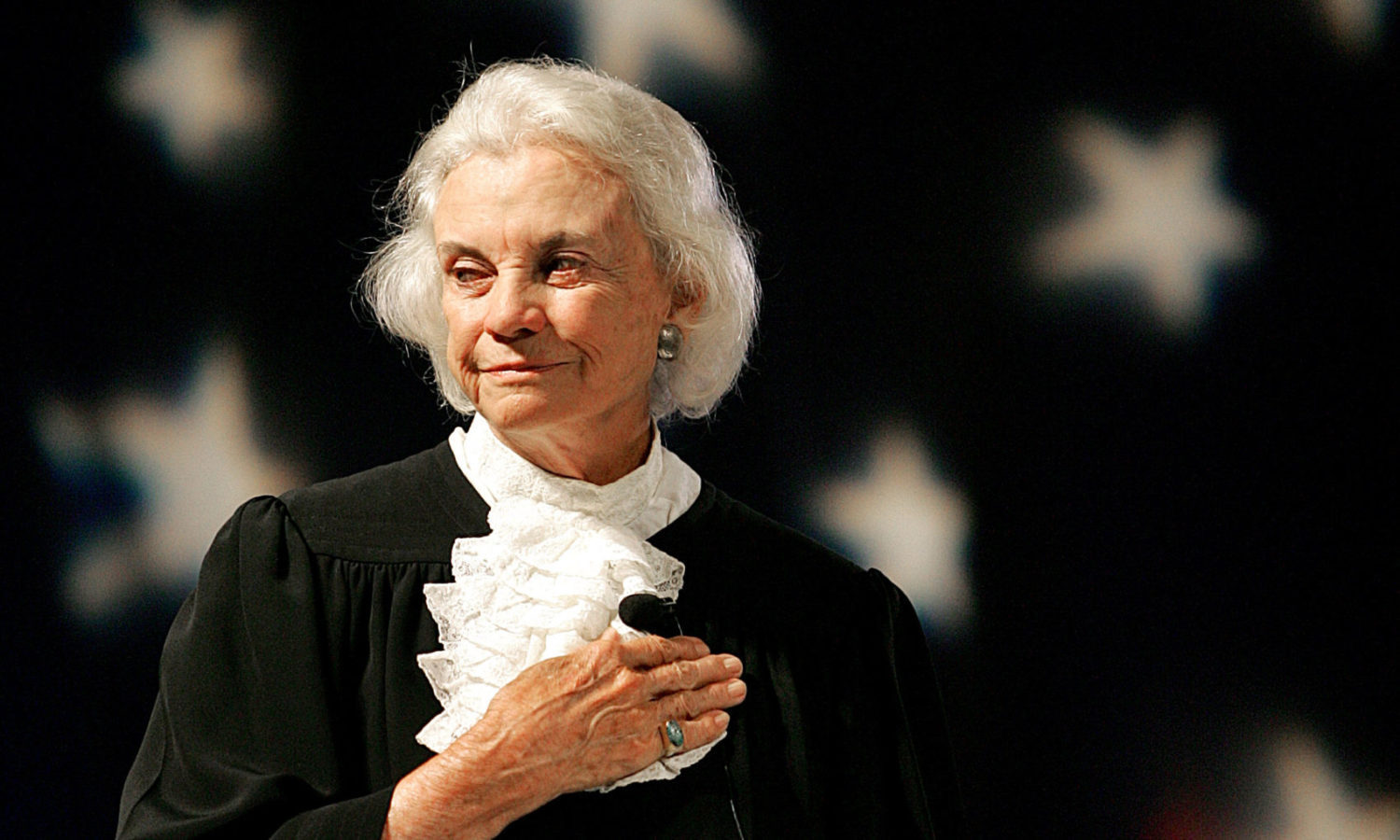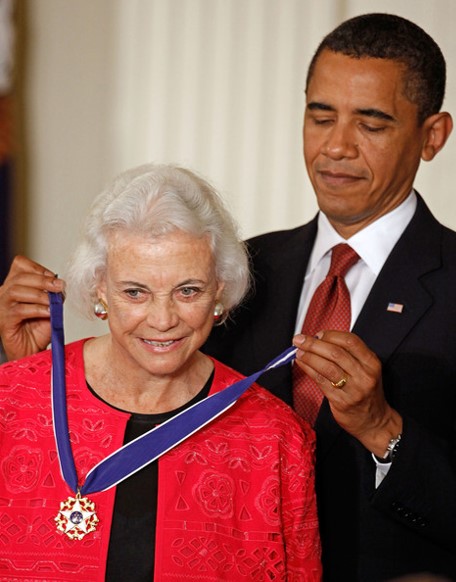Sandra Day O’Connor’s influence on American democracy is profound, but some of her most impactful contributions go beyond her historic appointment as the first woman on the U.S. Supreme Court. Justice O’Connor was a legal trailblazer and a champion of civic education, civil discourse, and democratic values.
Here are five surprising ways she helped shape American democracy—and why her legacy remains more vital than ever.

5 Ways Justice O'Connor Shaped Democracy:
- She Put civics Education on the National Radar
- She Championed Civil Discourse as a Civic Duty
- She Redefined the Role of Women in Government
- She Strengthened the Balance of Powers
- She Believed Democracy Starts with the Individual
Justice O'Connor Put Civics Education on the National Radar
Shortly after she retired from the Supreme Court, Justice O’Connor turned her attention to a significant crisis: the decline of civic knowledge among Americans. In 2009, she established the Institute and iCivics, to address this challenge. Since then, both organizations have worked to develop resources that reach millions of students and adults each year.
“We have a complex system of government. You have to teach it to every generation.” – Sandra Day O’Connor
Justice O’Connor didn’t just advocate for civics education—she built infrastructure that continues to support it today. Her work helped spark a national conversation about the importance of informed citizenship.

Justice O'Connor Championed Civil Discourse as a Civic Duty
At a time when public dialogue has grown more polarized, Justice O’Connor’s example reminds us that democracy flourishes when we listen to and learn from one another. Her jurisprudence was characterized by moderation and consensus-building, reflecting her profound belief in respectful engagement across differences.
“The freedom to criticize judges and other public officials is necessary to a vibrant democracy. But we must be careful to do so in a way that does not undermine public confidence in our legal institutions.” – Sandra Day O’Connor
We uphold her work at the Sandra Day O’Connor Institute for American Democracy, promoting civil discourse as a national value and encouraging Americans to swap division for dialogue.

Justice O'Connor Redefined the Role of Women in Government
Justice O’Connor often expressed that she felt a “special responsibility” as the first woman on the Supreme Court—but she embraced that role with quiet strength rather than with dramatic gestures. She demonstrated that women could lead at the highest levels without altering their true selves.
“Do the best you can in every task, no matter how unimportant it may seem at the time.” – Sandra Day O’Connor
Her thoughtful and pragmatic decision-making normalized the presence of women in positions of power, inspiring a generation of young women to pursue careers in law, politics, and public service.
Justice O'Connor Strengthened the Balance of Powers
In a divided court, Justice O’Connor frequently acted as the decisive swing vote, shaping rulings on abortion rights, affirmative action, and states' rights. However, she never sought to impose her ideology; instead, she concentrated on preserving the Constitution’s balance of powers and defending the integrity of democratic institutions.
“It is not enough simply to read or memorize the Constitution. Rather, we should try to understand the ideas that gave it life and that give it strength still today.” – Sandra Day O’Connor
By resisting partisanship and protecting the separation of powers, Justice O’Connor reinforced the guardrails that keep American democracy resilient.
Justice O'Connor Believed Democracy Starts with the Individual
Perhaps most powerfully, Justice O’Connor believed that democracy is not something we inherit but choose, protect, and practice. Whether through voting, civic learning, or public service, she urged every American to take part.
“The practice of democracy is not passed down through the gene pool. It must be taught and learned anew by each generation.” – Sandra Day O’Connor
From her earliest days as an Arizona Assistant Attorney General to the Arizona State Senate and her years after the Supreme Court advocating for civics education, she modeled what it means to be an active and responsible citizen.


Explore Her Legacy
Justice Sandra Day O’Connor’s work continues through the mission and programs of the O’Connor Institute for American Democracy, including:
- Civics for Life: A lifelong learning platform on civics and civil discourse
- O’Connor Digital Library: Discover more about her life, voice, and vision by exploring the O’Connor Digital Library, an interactive archive of her writings, speeches, and reflections.
- Watch & Listen: The Institute is proud to provide a variety of podcasts for you to watch or listen to in which we discuss books, policies, and topics of the day with authors, thought leaders, and more.
What’s Next?
Sandra Day O’Connor’s legacy extends beyond history; it serves as a call to action for every generation of Americans. We invite you to explore the O’Connor Institute website, visit the O’Connor Digital Library, or begin a brief, self-guided lesson at CivicsforLife.org as we honor Justice O'Connor's life and contributions to democracy.
